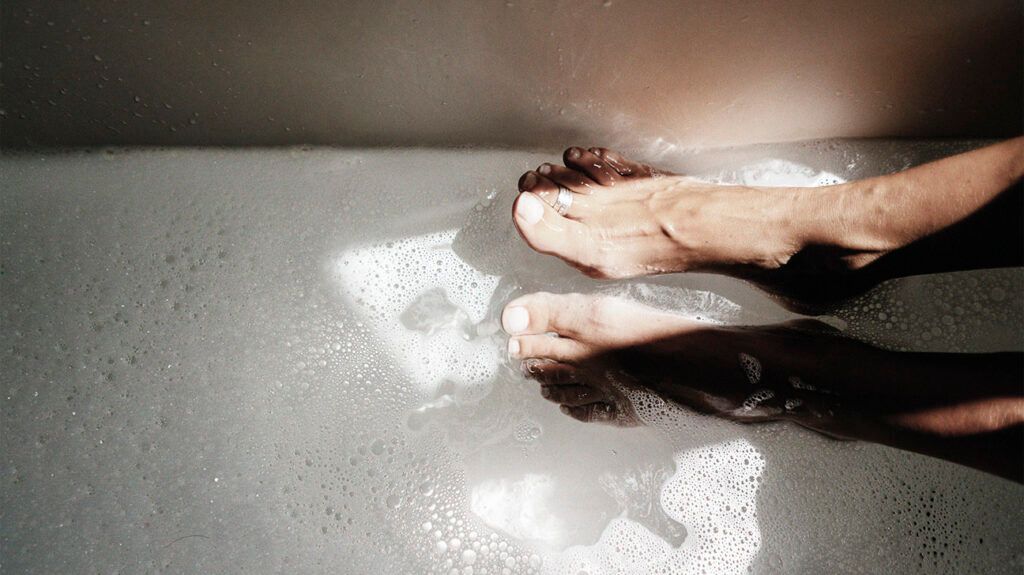Taking a bath with a UTI may irritate and worsen symptoms. To reduce this risk, people may want to consider showering instead of taking a bath until the infection clears.
Sitting in a warm bath can be relaxing, but in some cases, it can promote the growth of bacteria and cause skin irritation. This may have a negative effect on people with a UTI who are already experiencing inflammation due to their condition.
This article discusses how baths can affect people with UTIs and how to prevent the condition.

Bathwater can contain many bacteria and dirt from the skin. Taking a bath and sitting in this water
For this reason, a person with an existing UTI may opt to shower instead of taking a bath.
If a person must take a bath, it is best to avoid bubble baths or using other harsh soaps or chemical additives. While taking a bath is
While there is no scientific evidence confirming that bubble baths cause UTIs, research has shown that using strong soap and soapy water
Irritation to and around the urethra can make it difficult to pass urine and cause pain. To avoid this, people — particularly children — may delay going to the bathroom. However, holding urine is one of the
If an adult or a child already experiences irritation around the urethra, it may be advisable to avoid bubble baths and instead opt for showers to prevent further inflammation.
People should note that bubble baths and holding in urine are not the only potential risk for UTIs in children and adults. Other causes of UTIs
- hygiene issues, which can be associated with potty training in children
- structural problems in the urinary tract, such as enlarged prostate
- changes in the bacterial flora in the urinary tract
- pregnancy
- not wiping front to back
Certain strategies may help people prevent UTIs,
- wiping from front to back to avoid contact between feces and the genitals
- washing hands before using tissues, toilet paper, or washcloths for cleaning and wiping
- choosing a clean and gentle liquid soap instead of soap bars
- wiping once with each tissue or washcloth
- keeping the genital area clean
- during a bath or shower, washing the genitals first to prevent bacteria exposure from other areas
- using a clean washcloth exclusively for wiping the genitals
- drinking plenty of water
- taking vitamin C supplements and incorporating cranberry juice into the diet
- using an estrogen cream during menopause
- probiotics, but more research into their effectiveness is necessary
Before starting a new medication, such as estrogen creams or even supplements for UTI, people should speak with a doctor first.
Here are some common questions about UTIs:
How do you stop a UTI when you feel it coming?
Maintaining appropriate hygiene, drinking plenty of water, and urinating whenever a person feels the urge
Doctors may also prescribe medications for people with recurrent UTIs as soon as they experience the initial symptoms.
What is the fastest way to clear up a UTI?
Drinking cranberry juice and plenty of water
Are bubble baths bad for a UTI?
Bubble baths
Is a UTI contagious through baths?
Taking a bath is
While baths are unlikely to cause UTIs, someone with an existing infection may wish to avoid baths until the infection clears. This is to prevent further irritation to the area. People can opt to shower during this time instead.
People should also avoid taking bubble baths or using harsh soaps when showering to help prevent worsening symptoms.
